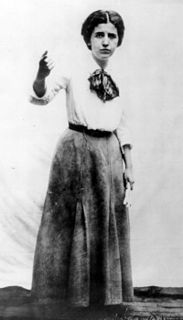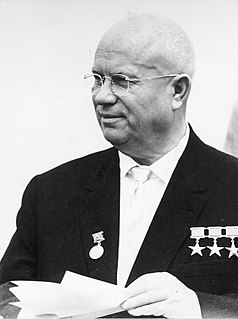A Quote by Robert Sapolsky
We like our individuality, we like the mysteriousness of us, the essentialism of us, and it can be alarming to see the biological gears turning underneath.
Quote Topics
Related Quotes
As we live our human lives, let us be like the water. Let us be conscious of the flow. Let us not forget the great ground of being that draws us on through life. Let us live in a knowing hope, aware that all being is in transition, that all movement is back to the source. Let us treat those around us as reminders of our illusionary individuality. We know that they are us and we are them connected in ways we cannot fathom. Let us grow in compassion for all beings, for they share our journey.
None of us like the concept of law because none of us like the restraints it puts on us. But when we understand that God has given us his law to aid us in guarding our souls, we see that the law is for our fulfillment, not for our limitation. The law reminds us that some things, some experiences, some relationships are sacred. When everything has been profaned, it is not just my freedom that has been lost- the loss is everyone's. God gave us the law to remind us of the sacredness of life, and our created legal systems only serve to remind us of the profane judgments we make.
Both sameness and difference are issues for us. A sign of cultural homogenization is that languages are disappearing at an alarming rate. I am heartened by signs that some peoples are fighting back, e.g., the revitalization of the language of the Wampanoag tribe in Massachusetts. But if we reject essentialism about culture, we will be cautious about overgeneralizing about what homogenization is and to what degree it exists. If we think of cultures as dynamic, internally diverse and contested, we will be aware that what looks like homogenization may be deeper down this more complicated thing.
Like the shepherds of old, we need to say in our hearts, “Let us see this thing which is come to pass.” We need to desire it in our hearts. Let us see the Holy One of Israel in the manger, in the temple, on the mount, and on the cross. Like the shepherds, let us glorify and praise God for these tidings of great joy!
Most of the things at the zoo don't look like us. We're one design that works. Our chimp pals sort of look like us, so that's a different take on the same basic design. But fish don't look like us, and giraffes don't. They look a little like us, but not too much. And insects certainly don't look like us, and they work just fine.
I never lied to you. (Kiara) Of course you did –you said you could see the real us– that we weren’t as bad as we claimed. But you didn’t and, just like everyone else, so long as we risk our lives to protect and save you, we’re okay. But the moment we have to make a choice not ours, the moment you see what our pasts have made us, you’re horrified by the truth and hate us for it like we had some kind of choice in what we are. (Syn)
If it is written and read with serious attention, a novel, like a myth or any great work of art, can become an initiation that helps us to make a painful rite of passage from one phase of life, one state of mind, to another. A novel, like a myth, teaches us to see the world differently; it shows us how to look into our own hearts and to see our world from a perspective that goes beyond our own self-interest.
We're a lukewarm people for all our feast days and hard work. Not much touches us, but we long to be touched. We lie awake at night willing the darkness to part and show us a vision. Our children frighten us in their intimacy, but we make sure they grow up like us. Lukewarm like us. On a night like this, hands and faces hot, we can believe that tomorrow will show us angels in jars and that the well-known woods will suddenly reveal another path.




































